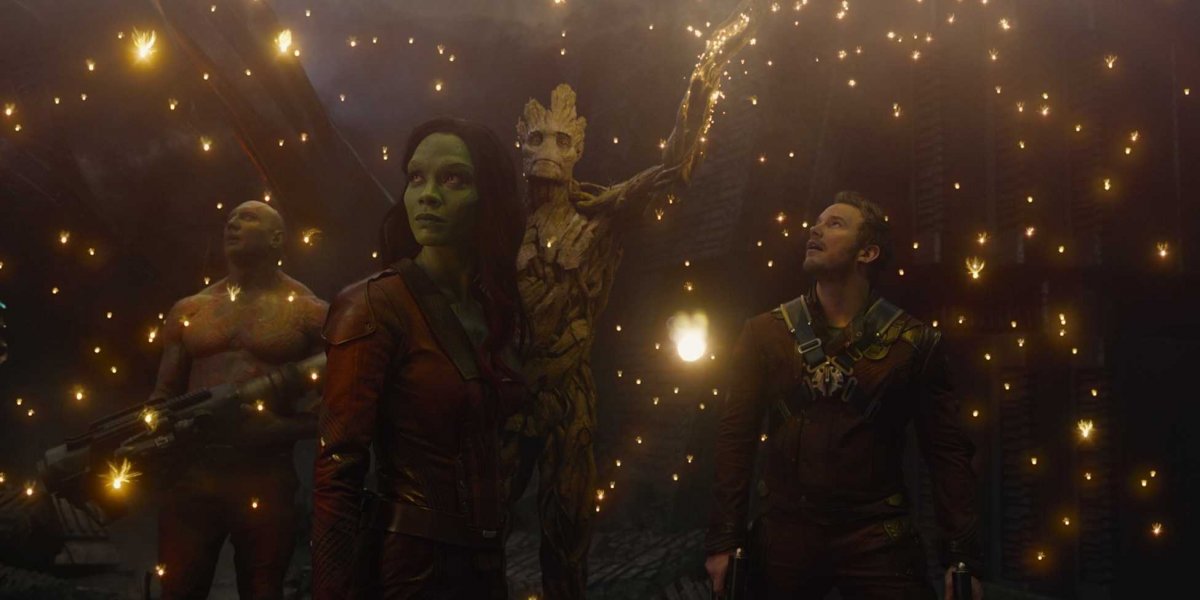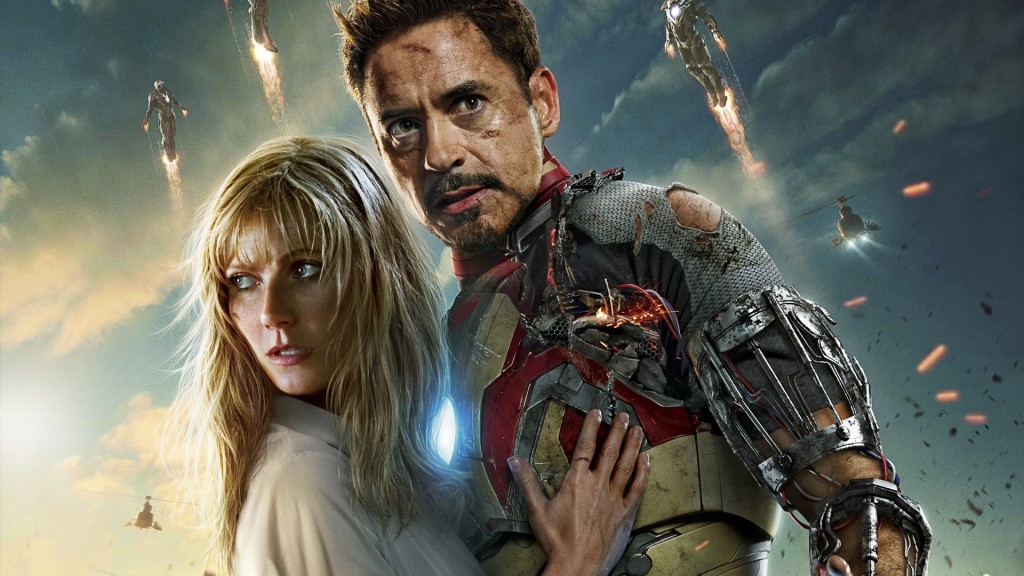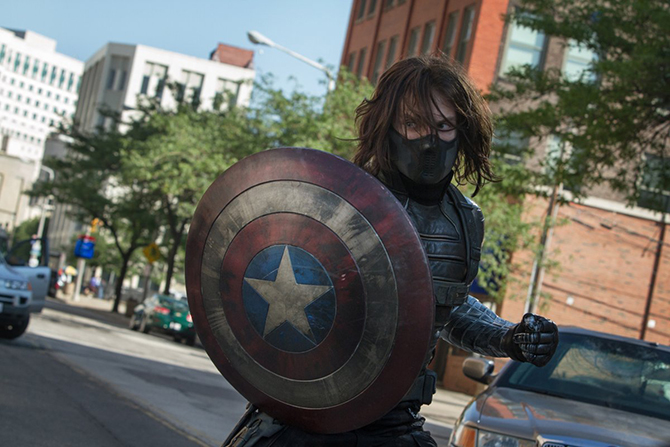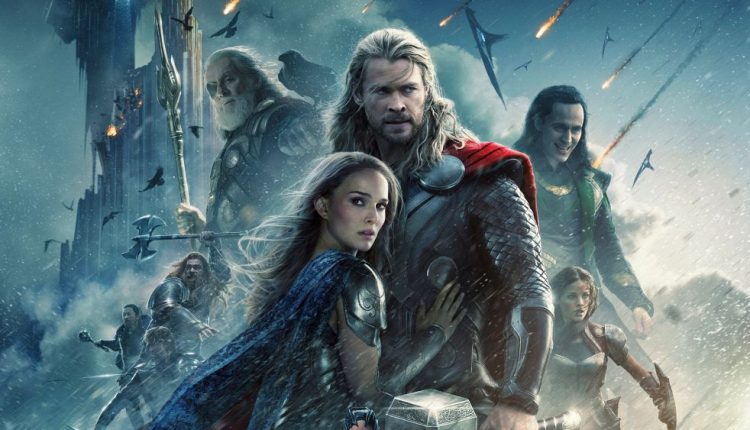As we approach what seems to be the crescendo of the Marvel Cinematic Universe, I decided to take a wander through the backlog and revisit all the major releases since Iron Man back in 2008.
It’s funny to think that just over a month ago, I considered myself “burnt out” from the sheer amount of Marvel films that have been released over the past few years, yet now here I am ridiculously excited for the first part of Infinity War, dedicating most of my evenings to at least one of the previous episodes. The MCU has gone through several phases, evolving its characters and narratives to appeal to various demographics, but what I would consider its peak, where everything was operating at its best, would be what has now been dubbed ‘Phase 2’.
Avengers Assemble (or The Avengers) marked one of the biggest blockbuster releases of the decade, culminating four years worth of build-up and bringing together the likes of Iron Man, Captain America, and The Incredible Hulk for the first time on the big screen. It was massive, and I still get giddy thinking back to my opening night experience. If people weren’t jumping on the Marvel bandwagon before then, they sure were after Assemble. Looking back on it, however, it wasn’t exactly the ‘best’ of the Marvel films; in fact, it was fairly generic and poorly paced when compared to some of the others. Nevertheless, it felt like a big deal and it was the true start of the superhero boom.
Seeing as it was such a big hit, and crowds were flocking in huge numbers to watch whatever Marvel decided to churn out next, Marvel chose to take some risks and change things up in the successors to the hero’s origin stories. Phase 2’s line-up not only expanded the cinematic universe into the cosmic realm of Marvel lore but also delved into different genres that aren’t usually found within comic films.
Phase 2 began with Iron Man 3, the last of the stand-alone Iron Man films. Released in 2013, Iron Man 3 struggled to find hype despite coming off the heels of Assemble a year prior. Jon Favreau had stepped down from the director’s seat after having disputes with Marvel Studios, which left some pretty big shoes to fill for Shane Black. But Robert Downey Jr. (the man who essentially kick-started the MCU) was also threatening to leave for other ventures after his contract ended. Iron Man 3 became an estranged love-child of Marvel and Shane Black’s more gritty, tongue-in-cheek style, unable to really find its feet. It came under a lot of criticism from both fans and media, not living up to the high standards set for Marvel films after Assemble.
Watching it back, however, I believe it’s the first brave step made my Marvel to differentiate themselves from the typical superhero franchise. It offered something that set this film aside from the usual narrative structures and character archetypes. Tony Stark was left fragile after the events of New York, showing a more mentally vulnerable protagonist. It’s really the first time that such a revered, larger than life character had displayed such anxiety, which I thought spoke volumes about how such issues as PTSD are becoming more recognised. The film tackles a more modern interpretation of terrorism, presenting the widely anticipated arch-nemesis The Mandarin as a sociopathic tyrant, attacking Western culture through random acts of terror.
Despite the conclusion to The Mandarin’s story, it was definitely an interesting take on the villain which brought the story back down to Earth (literally, in Iron Man’s case). The threat was becoming more localised and put our heroes into situations that tended to exist outside of comic books. Guy Pearce’s take on Aldrich Killian also adapted the character to appear less fantastical, bringing the characters away from relying upon big suits of armour and science-y weapons.
This began a trend throughout the MCU of espionage and mistrust amongst the heroes and their compatriots. What better film to demonstrate this than Captain America: The Winter Soldier. I personally believed that Cap 2 would bomb, having such little faith in the concept of Captain America that after the origins story, Chris Evans’ supersolider would never be able to carry a solo movie. I was so very wrong.
Winter Solider brought S.H.I.E.L.D into the political realm and supposed that the agency which brought The Avengers together was in fact working against the status quo. Bringing Cap’s rivals HYDRA back into the fold in an intriguing way allowed for a story which echoed spy films of old, having the audience second guess the characters and be led through a very strange story when considering Marvel’s roots. The Russo brothers did a fantastic job at creating something new with Captain America at the helm, disregarding any of the preconceived versions of what the character would become — the typical do-gooder in spandex replaced with a headstrong veteran.
S.H.I.E.L.D was an exceptional and unexpected villain this early in the canon, it showed some really innovative writing, which not only expanded the backgrounds of both Nick Fury and Black Widow, but also set-up turmoil for the rest of the characters as well. It led to many questions for the fanbase to address when considering why The Avengers were brought together. The Winter Solider is widely considered one of the better entries of Phase 2; it surpassed all expectations, had a stellar cast and cemented a very different perspective on the MCU.
It’s just a shame that Thor: The Dark World couldn’t have done the same.
The 2010 film suffered a similar fate, with many fans quickly labeling it as a weak entry. Alan Taylor attempted to save the solo film sinking ship, but it turned out to be a weird mesh of Norwegian mythology and poorly timed humour. There was no clear theme or threat throughout this two hour bomb. The Dark Elves were a bunch of generic antagonists that were included purely to introduce another one of the Infinity Stones. None of the characters shined and the focus on Thor and Jane Foster’s budding relationship seemed awfully similar to the tedious sub-story between Anakin and Padme in Attack of the Clones.
The only real reason to watch this film is to keep up with the canon or to get a little extra from Tom Hiddleston’s Loki. Aside from that, there’s really no substance and it really derailed the Marvel momentum. Perhaps The Dark World could have been saved by the inclusion of one of the other Avenger pals that Thor had hooked up with a few canon-months earlier, giving the audience something of a hook for when Thor would eventually leave Asgard again and return to London for the final battle.
Luckily, James Gunn fired back with an excellent addition to the MCU.

comicbook.com
Now, before we start gushing on about how great Guardians of the Galaxy was, I want to preface this by saying that I’m still not an avid fan of the film. Yeah, I’m fully aware that I’m in a minority of people that think this, but to me, Guardians was a step back for the MCU. My first time watching the film left me feeling really bitter about how far the tone drifted from the perfectly set Winter Solider. Even though Marvel is famous for its campy nature, I found it hard adapting back to the colour and cheese that was put forward in the first cosmic entry to the Marvel world.
After giving it a second chance, I’m a little more open to it. I’ve been beaten into submission by the likes of Thor: Ragnarok and Doctor Strange. I guess I’ve just learned to lighten up a bit.
So here I am now, accepting Guardians as a daring and successful attempt at re-establishing the comic approach to superheroes and getting audiences to have fun in the process, something which a lot of franchise films can sometimes forget. Everything stands out with this film – the soundtrack, the performances, the entire aesthetic. It’s a fantastic introduction to the ‘other’ side of the MCU. Guardians really pulled things together for Marvel, providing fans who were growing tired of the Avengers with some original content. It tugged on the heart strings of sci-fi fans, breathing some fresh life into the brand and proving once again that the MCU has some of the best diversity in modern cinema.
To go from an espionage fueled action-thriller to space and fantasy is something that few franchises could wish to achieve. DC have obviously attempted to create a similar range within their Justice League series, but need we mention just how poor all that turned out?
Despite a few bumps in the road, Phase 2 is one of the most well-rounded periods of film. It was an interesting experiment for the popular franchise and has since paid off with the later films expanding on the genres adapted into the MCU. Civil War is widely regarded as one of the best, if not the best Marvel film, bringing together the camp and the tension developed by Winter Solider, Guardians and Iron Man 3. I can’t wait to see the culmination and the pay-off when it arrives on April 27th.
Some of the coverage you find on Cultured Vultures contains affiliate links, which provide us with small commissions based on purchases made from visiting our site. We cover gaming news, movie reviews, wrestling and much more.






